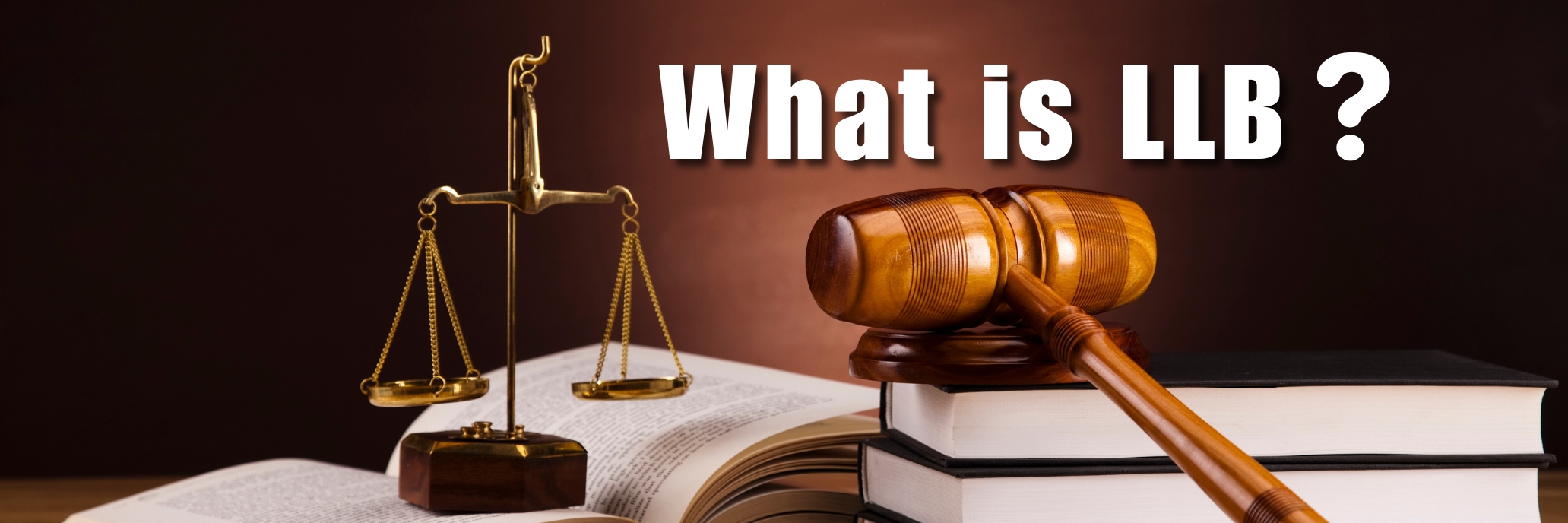What Qualifications Are Required for LLB?
What Qualifications Are Required for LLB?
Embarking on a career in law is a significant and rewarding decision, and obtaining a Bachelor of Laws (LLB) degree is the first step in this journey. Understanding the qualifications required for an LLB program is essential for aspiring legal professionals. This comprehensive guide by Bodmas Education will cover all the necessary qualifications, including educational prerequisites, entrance exams, and other key criteria you need to meet to pursue an LLB degree.
- Overview of the LLB Program
The LLB (Bachelor of Laws) is an undergraduate law degree that serves as the foundational qualification for a career in law. It typically spans three to five years, depending on the country and university, and covers various aspects of law such as constitutional law, criminal law, contract law, property law, and human rights.
- Educational Qualifications
- Higher Secondary Education (10+2)
The most common prerequisite for an LLB program is the completion of higher secondary education (10+2) or its equivalent from a recognized board or institution. The specific requirements can vary:
- Minimum Percentage: Most universities require a minimum percentage of marks in the 10+2 exams, usually ranging between 45% to 60%. However, the exact percentage can vary by institution and category of the applicant (general, SC/ST, OBC, etc.).
- Stream: While students from any stream (Science, Commerce, Arts) can apply for LLB programs, some universities might have preferences or additional criteria for certain streams.
- Graduation (For 3-Year LLB Programs)
In countries like India, the LLB program is available as a three-year course for graduates. The qualification requirements for this route include:
- Bachelor’s Degree: Completion of a bachelor’s degree in any discipline from a recognized university.
- Minimum Percentage: Similar to the 10+2 route, a minimum percentage is required, typically ranging from 45% to 55%.
- Entrance Exams
Entrance exams are a crucial component of the LLB admission process. Various universities and countries have their own entrance exams, some of the most notable ones include:
- CLAT (Common Law Admission Test)
CLAT is a national-level entrance exam in India for admission to 22 National Law Universities (NLUs) and other participating institutions. The exam assesses candidates on:
- English Language: Comprehension passages, grammar, and vocabulary.
- Current Affairs: General knowledge and current events.
- Legal Reasoning: Understanding and applying legal principles.
- Logical Reasoning: Analytical and critical thinking skills.
- Quantitative Techniques: Basic mathematical skills.
- LSAT (Law School Admission Test)
LSAT is a globally recognized entrance exam used by many law schools worldwide, including some in India. It evaluates candidates on:
- Reading Comprehension: Understanding and analyzing complex texts.
- Analytical Reasoning: Solving puzzles and logical problems.
- Logical Reasoning: Critical thinking and argument analysis.
- Writing Sample: An unscored essay used by law schools for admission decisions.
- AILET (All India Law Entrance Test)
Conducted by the National Law University, Delhi, AILET is another prominent entrance exam for LLB admissions. It covers similar sections as CLAT but is specific to NLU Delhi.
- University-Specific Entrance Exams
Several universities have their own entrance tests. For example:
- Delhi University LLB Entrance Exam
- BHU UET (Banaras Hindu University Undergraduate Entrance Test)
- Symbiosis Entrance Test (SET) for Law
- Additional Qualifications and Skills
In addition to educational qualifications and entrance exams, some universities and law schools may consider the following:
- Statement of Purpose (SOP)
An SOP is a written statement where you explain your interest in law, career goals, and reasons for choosing the specific program and university. Bodmas Education offers expert assistance in crafting a compelling SOP that highlights your strengths and aspirations.
- Letters of Recommendation (LOR)
LORs from teachers, professors, or professionals who know you well can enhance your application. They should attest to your academic abilities, character, and suitability for a career in law.
- Extracurricular Activities
Participation in extracurricular activities, particularly those related to debate, public speaking, or community service, can bolster your application. Universities often look for well-rounded individuals with diverse interests and skills.
- Work Experience (For 3-Year LLB Programs)
For graduates applying to 3-year LLB programs, relevant work experience, internships, or volunteer work in the legal field can strengthen your application.
- Application Process
Understanding the application process is crucial for securing admission to an LLB program. The steps generally include:
- Research and Shortlisting
Research various universities and law schools, considering factors like reputation, faculty, course structure, location, and placement records. Shortlist the institutions that align with your preferences and career goals.
- Registration for Entrance Exams
Register for the required entrance exams, ensuring you meet the deadlines. Prepare thoroughly using recommended study materials, online resources, and mock tests.
- Online Application
Most universities have an online application portal where you need to:
- Register: Create an account using your email ID.
- Fill Application Form: Provide personal details, educational qualifications, and entrance exam scores.
- Upload Documents: Upload scanned copies of required documents such as mark sheets, ID proof, photographs, SOP, and LORs.
- Pay Application Fee: Pay the non-refundable application fee online.
- Submit Application
Review your application thoroughly before submission. Ensure all details are accurate and all required documents are uploaded. Submit the application before the deadline.
- Interview and Selection Process
Some universities may conduct interviews as part of the selection process. Here’s how to prepare:
- Understand the Course: Be well-versed with the LLB program details and the university’s offerings.
- Current Affairs: Stay updated with current legal issues and news.
- Practice: Conduct mock interviews with friends or mentors to build confidence.
- Dress Formally: Maintain a professional appearance during the interview.
- Financial Planning
Pursuing an LLB program requires financial planning. Consider the following:
- Tuition Fees: Research the tuition fees of shortlisted universities.
- Scholarships: Look for scholarships and financial aid offered by universities or external organizations.
- Living Expenses: Estimate the cost of living, including accommodation, food, and transportation.
- Education Loans: Explore education loan options from banks and financial institutions.
- Visa and Immigration (For International Students)
If you are applying to universities abroad, ensure you are aware of the visa and immigration requirements. Bodmas Education provides assistance with the visa application process, including documentation, interview preparation, and submission.
- Acceptance and Admission
Once you receive acceptance letters from universities, carefully consider your options and choose the best fit for your career goals. Follow these steps:
- Acceptance Letter: Submit your acceptance letter and pay the admission fee.
- Document Verification: Attend the document verification process, if required by the university.
- Enrollment: Complete the enrollment formalities, including course registration and orientation programs.
LLB Application Process
The qualifications required for an LLB program encompass educational prerequisites, entrance exams, and additional skills that demonstrate your aptitude and readiness for a career in law. With careful planning and expert guidance from Bodmas Education, you can navigate the application process successfully and secure admission to a top law school.
For more personalized assistance and expert guidance on the LLB application process, contact Bodmas Education. Our experienced consultants are here to support you every step of the way, ensuring you achieve your academic and career aspirations in the field of law.























